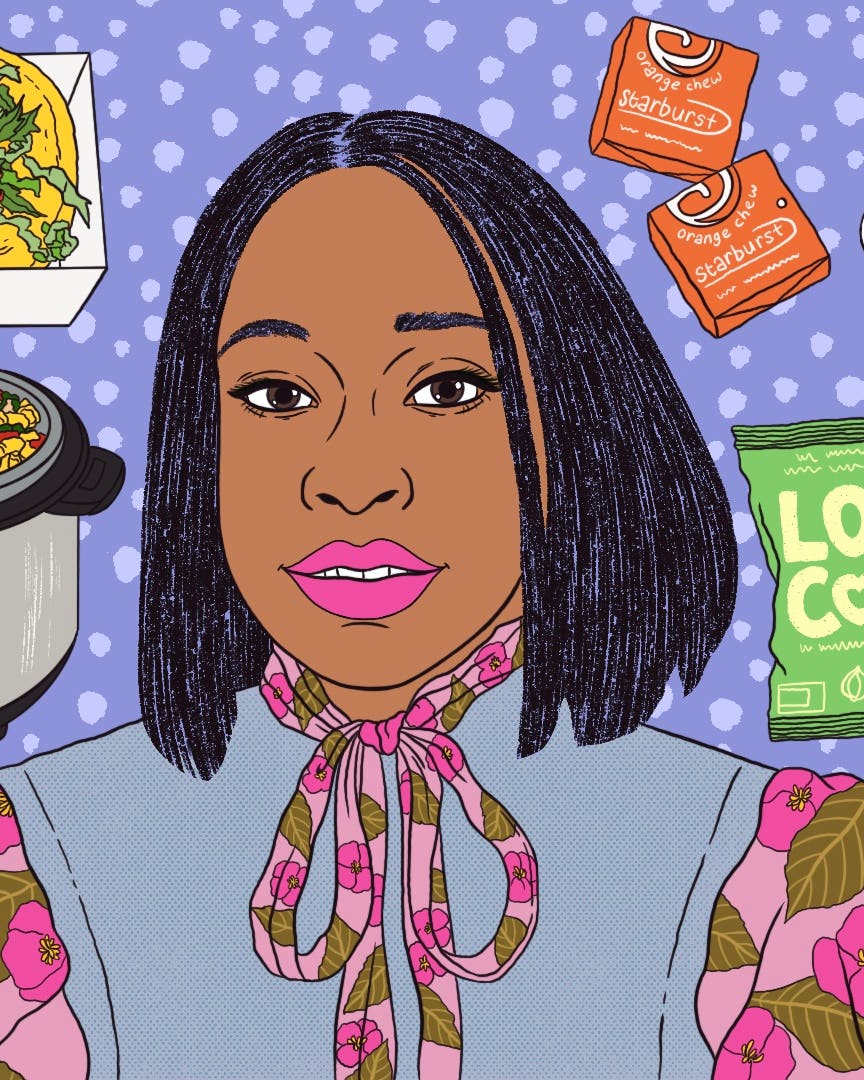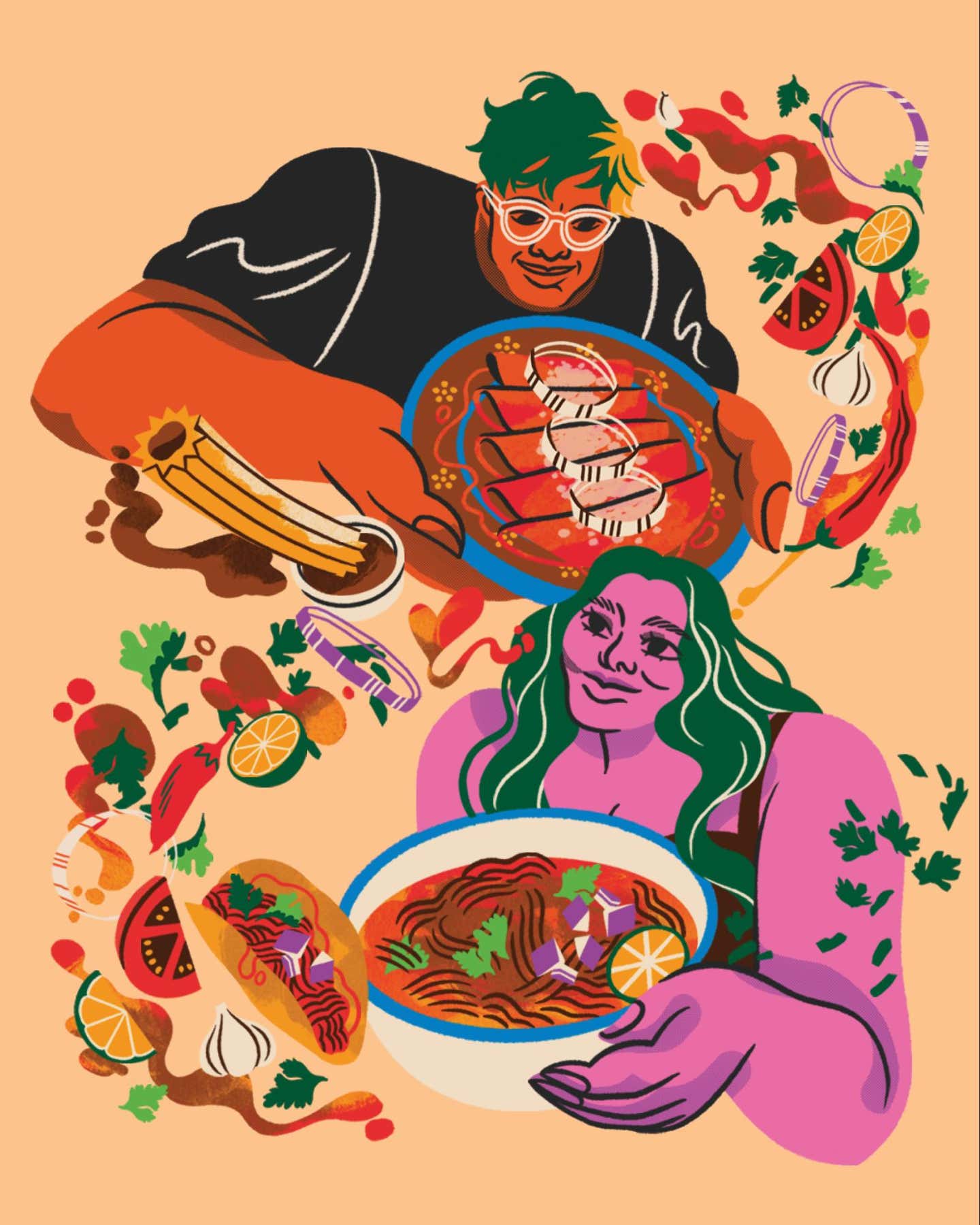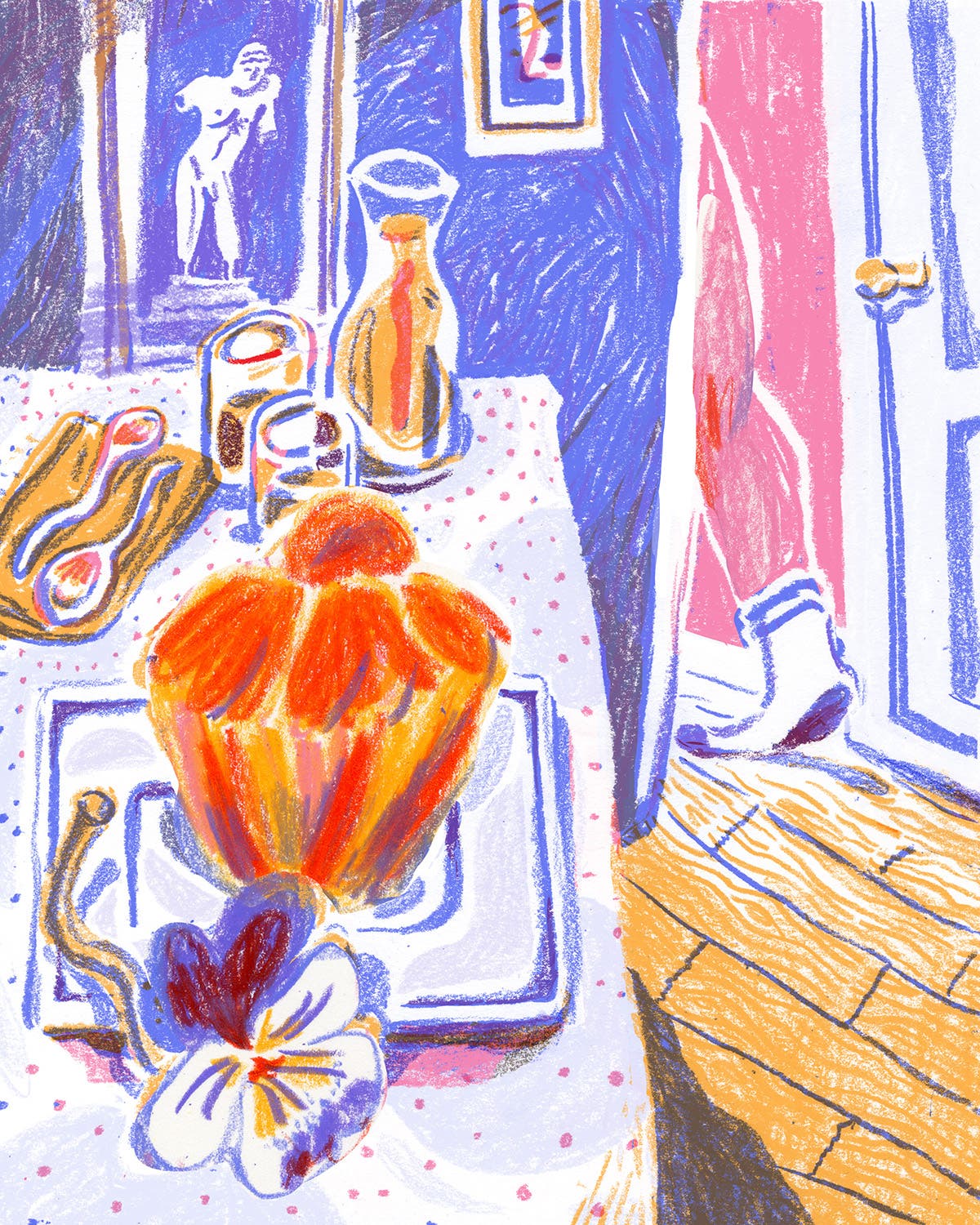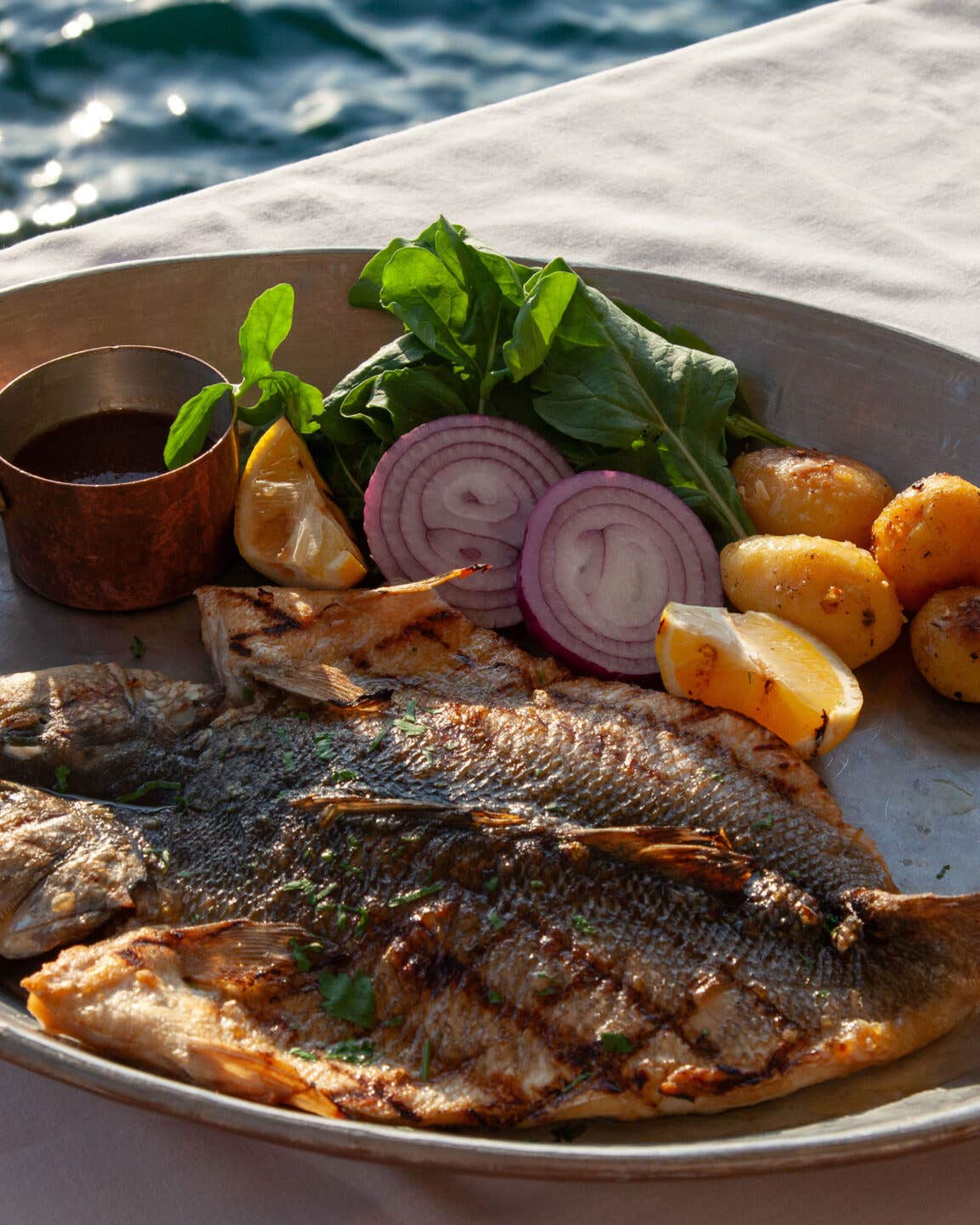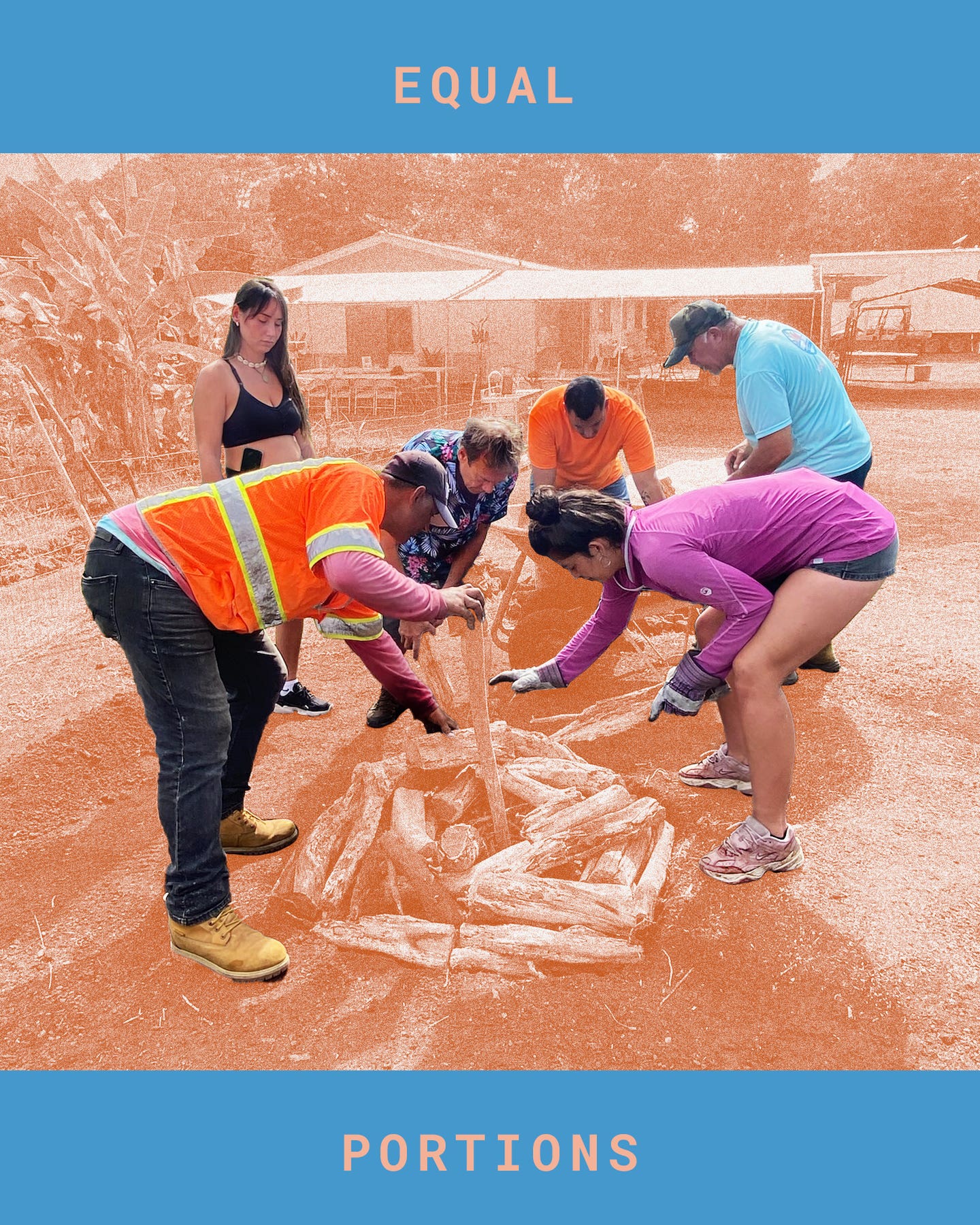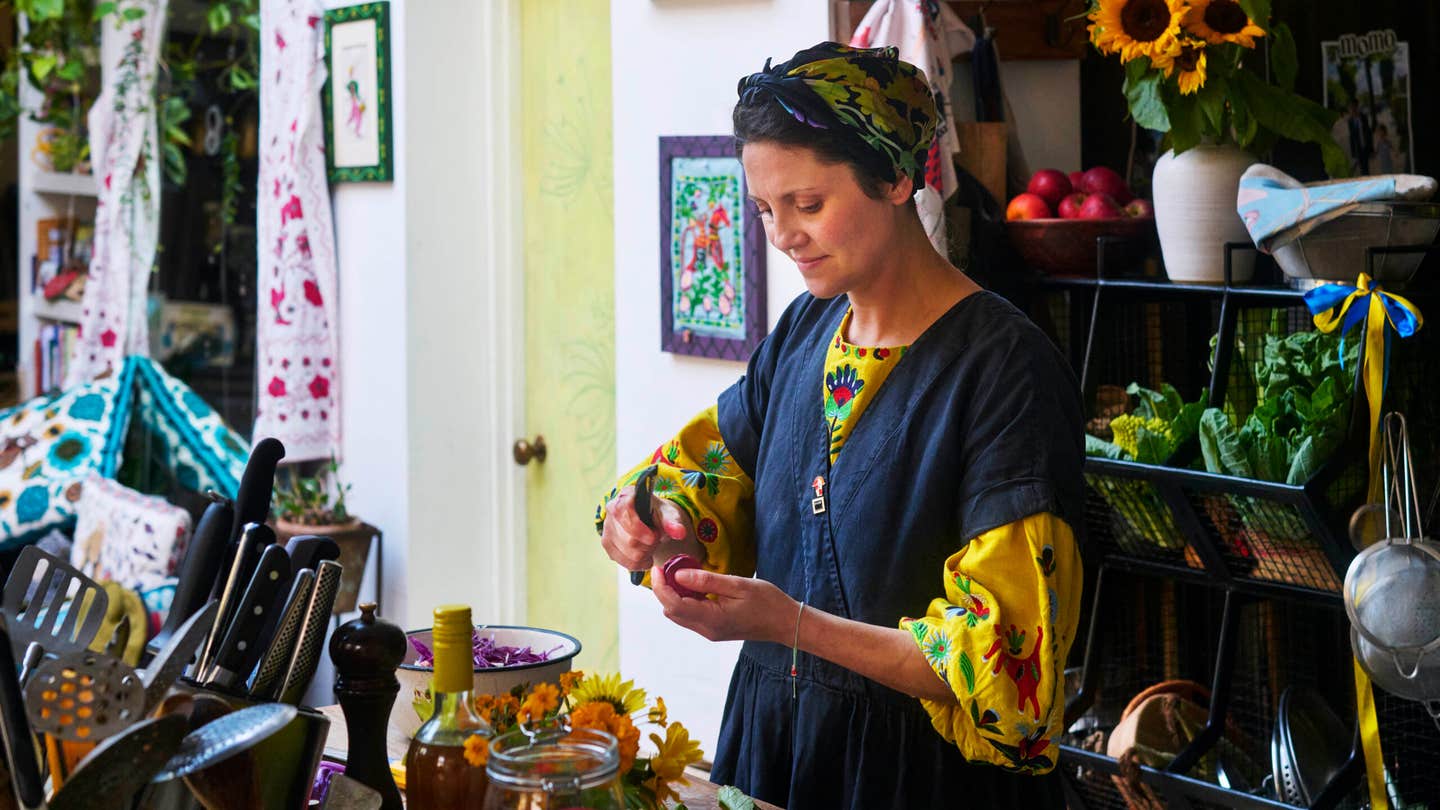Chef Charlotte Jenkins Is Spreading the Gospel of Gullah Cuisine
Despite retiring a decade ago, this South Carolina cook will stop at nothing to share her culinary culture with the world.

Years back, on an evening in Awendaw, South Carolina, a nine-year-old girl named Charlotte made dinner for her family. Charlotte’s mother had just stepped out to tend to an emergency, and the child took it upon herself to light the stove and cook up a meal of rice and fried liver, complete with a rich, brown gravy made from the fond left behind in the skillet. Now at age 81, the renowned Gullah Geechee chef Charlotte Jenkins says, “I always watched my mother cook and enjoyed being with her in the kitchen, so I figured it would be no problem for me to cook as I’d seen her do.” And she was right. When her mother called to check in, Charlotte’s brother answered the phone and let their mother know that Charlotte had not only capably prepared their dinner, but she’d done very well—and the gravy was perfect.
From that early moment, a spark was lit in chef Jenkins that couldn’t be extinguished. She held her brother’s opinion in high regard, and he encouraged her to continue cooking. In 1962, just after graduating from high school, she moved to New York City, joining other African Americans in the Great Migration, a time when many Black Southerners moved north and west in search of a release from the grips of the highly oppressive Jim Crow South. She eventually returned to South Carolina in 1973 to raise a family with her late husband Frank, a fellow Lowcountry native, and in 1997, the two of them opened Gullah Cuisine in Mount Pleasant, a restaurant that served the Jenkins family’s authentic Gullah Geechee food—red rice, okra gumbo, shrimp and grits, and seafood casserole—for almost two decades.

Like Jenkins (as well as my grandmother and most of my elders), I also had fond childhood memories of cooking, eating, and feeding my family. Despite growing up in Charleston, just across the river from Mount Pleasant, I never had an opportunity to eat at Jenkins’ restaurant, which closed when she retired in 2014. Truthfully, I didn’t learn about her work until I began my own journey as a chef, when I started looking into the culinary history of my hometown. Along the way, I came across a multitude of Black women chefs who, just like Jenkins, had largely been left out of conversations in the media around Southern cooking.
This past March, at the annual Charleston Wine + Food festival, I had the great pleasure of leading a cooking class with Jenkins and her daughter Kesha, where we taught our guests how to cook a perfect pot of rice, as well as conch stew and wedding punch, two recipes from her seminal 2010 cookbook, Gullah Cuisine: By Land and By Sea. “The conch stew to me was always an authentic Gullah dish,” Jenkins tells me, “something that wasn’t even an everyday thing for us because conch was sometimes hard to get. And back in the days when we got conch, it was exciting to prepare it. It’s in this odd shell, and you have to work to get the meat, and to me, the final product is delicious.” The wedding punch was a recipe of Kesha’s, a refreshing, celebratory concoction of moonshine, fresh sliced fruit, and Kool-Aid that packed a powerful punch (pun intended). Jenkins kept a watchful eye on me as I prepped and cooked the stew alongside her. After working so many years in professional kitchens, I’m great under pressure, but no chef in any restaurant gave me the feeling that Jenkins gave me then—a look that said, “I trust you to make this, but I’m keeping my eye on you just in case.”

Kesha, Jenkins, and I also discussed the role that Gullah Geechee culture played in creating American cuisine and its roots in the African diaspora. When enslaved West Africans were first brought from their fertile rice-growing homeland to the low-lying barrier islands of South Carolina, they retained their culture and community as much as they could. Many recognizable Southern American dishes, such as collard greens, cornbread, and sweet potato pie, were developed during this time, and are emblematic of the Gullah culture’s enduring influence.
Despite existing for centuries in the South Carolina Lowcountry, Gullah Geechee cooking is still considered a new concept to many, and Jenkins acknowledged that the investors and income her restaurant required simply weren’t there when she needed them. “I didn’t get that support,” Jenkins tells me. “The support I got was from my family, my savings, and our community—that’s what kept us going.” But while it was around, her Gullah Cuisine restaurant was instrumental in putting the region’s foodways on the map. “Nobody seemed to know about Gullah food then, or that Gullah Geechee people exist and have a style of cooking,” Jenkins says. “The restaurant woke people up to that.”

Despite being retired, Jenkins continues to answer the call she felt as a young girl and hasn’t stopped cooking since; after many years, she’s still mentoring young chefs, cooking for family and friends, and catering private events with Kesha at her side. At 2023’s Charleston Wine + Food festival, a year before our cooking class together, Jenkins and other Gullah matriarchs from across the Lowcountry were honored at a dinner prepared by young women chefs with ties to the local community. “I saw all the work I’d done didn’t go in vain,” Jenkins says. “It means a lot to me to teach others about our cuisine and culture,” she adds, “because if I don’t share, it dies. But by sharing, I can keep it alive.”
Recipes


Keep Reading
Continue to Next Story




